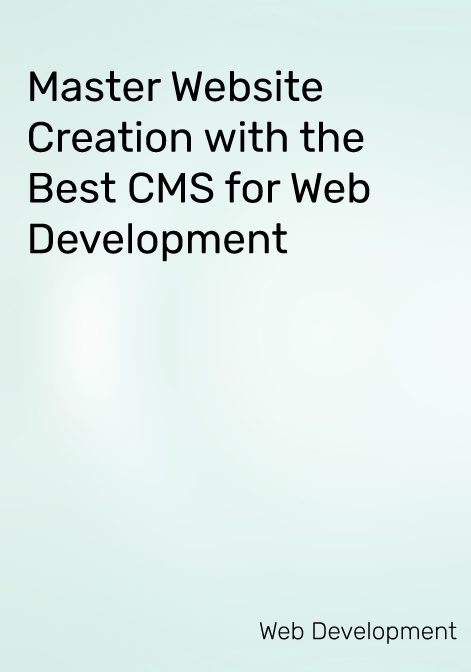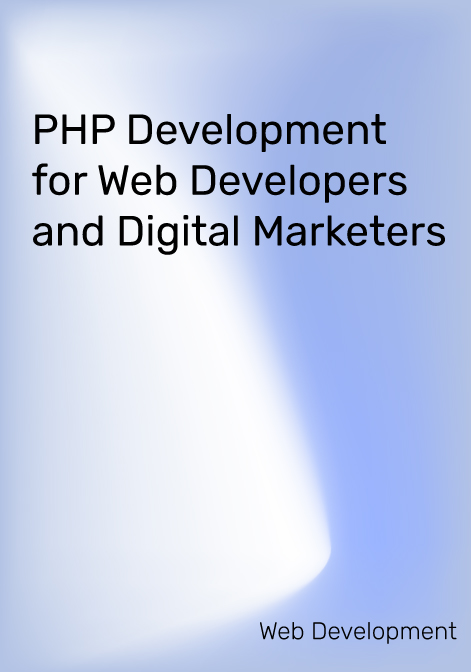Creating a website can be a daunting task, especially if you lack technical skills. Fortunately, Content Management Systems (CMS) make this process much easier for web developers and small business owners alike.
Here We’ll explore what a CMS is, its benefits, and how to choose the right one for your needs. We’ll also take a look at some of the top CMS platforms available today.
What is a CMS?
A Content Management System (CMS) is a software application that allows users to create, manage, and modify content on a website without the need for specialized technical knowledge. Think of it as a user-friendly interface between you and the complex coding that makes up your website.
User-Friendly Content Management
One of the primary advantages of a CMS is its user-friendly interface. With drag-and-drop features, visual editors, and simple dashboards, managing your website’s content becomes a breeze. This eliminates the need for hiring a developer for every small change, saving both time and money.
No Coding Required
For those who are not tech-savvy, a CMS is a game-changer. Most CMS platforms allow you to build and maintain a website without writing a single line of code. This opens up web development to a wider audience, making it accessible for individuals with limited technical knowledge.
Flexibility and Customization
A CMS offers a high degree of flexibility and customization. Whether you want to add new functionalities through plugins or customize the look and feel of your site with themes, a CMS makes it possible. This flexibility ensures that your website can grow and adapt to meet your changing needs.
Additional Reads: Shopify Development
Benefits of Using a CMS for Web Development
Using a CMS comes with a variety of benefits, which make it an attractive option for web developers and small business owners.
SEO-Friendly Features
Most CMS platforms come with built-in SEO-friendly features, such as customizable page titles, meta descriptions, and URL structures. These features make it easier to optimize your website for search engines, helping you attract more organic traffic.
Cost-Effectiveness
Compared to custom web development, using a CMS is often more cost-effective. Many CMS platforms offer freemium versions, allowing you to get started without any initial investment. Even premium plans are usually more affordable than hiring a full-time developer.
Broad Community Support
Popular CMS platforms have large communities of users and developers. This means you can easily find tutorials, forums, and support groups to help you overcome any challenges you might face.
Who Can Benefit from a CMS?
A CMS is versatile and can be beneficial for various users and applications.
Businesses of All Sizes
Whether you’re a small startup or a large corporation, a CMS can help you manage your website efficiently. Small businesses, in particular, can benefit from the cost-effectiveness and ease of use that a CMS offers.
Individuals with Limited Technical Knowledge
For individuals who lack technical skills, a CMS provides a way to create and manage a website without needing to learn coding. This makes it an excellent choice for bloggers, artists, and freelancers.
E-commerce Store Owners
E-commerce platforms like Shopify and Magento are types of CMS specifically tailored for online stores. They offer specialized features like inventory management, payment gateways, and sales tracking, making it easier for store owners to manage their businesses.
Popular CMS Platforms
There are several CMS platforms that dominate the market. Here’s a brief overview of some of the top contenders:
WordPress (Open Source)
WordPress is the most popular CMS, powering over 40% of all websites on the internet. It offers a wide range of plugins and themes, making it highly customizable. According to W3Techs, WordPress holds a 64.1% market share among CMS platforms.
Drupal (Open Source)
Drupal is known for its robustness and scalability, making it a favorite among developers for more complex websites. It’s highly customizable but has a steeper learning curve compared to WordPress.
Joomla (Open Source)
Joomla offers a balance between ease of use and flexibility. It’s suitable for both beginners and experienced developers, providing a wide range of extensions and templates.
Wix (SaaS)
Wix is a cloud-based CMS that offers a simple drag-and-drop interface. It’s ideal for small businesses and individuals who need a quick and easy way to create a website.
Squarespace (SaaS)
Squarespace is known for its stunning templates and easy-to-use interface. It’s a great option for creatives and small business owners who want a visually appealing website.
Shopify (SaaS) (E-commerce Focus)
Shopify specializes in e-commerce and provides everything needed to run an online store. It’s user-friendly and comes with a variety of features tailored for e-commerce.
Magento (Open Source) (E-commerce Focus)
Magento is another powerful e-commerce CMS. It offers extensive customization options and is suitable for larger businesses with more complex needs.
Additional Reads: PHP Development
Choosing the Right CMS for Your Needs
Selecting the right CMS can be challenging, but considering the following factors can help you make an informed decision:
Ease of Use and Learning Curve
Evaluate how user-friendly the platform is and how quickly you can learn to use it. Platforms like WordPress and Wix are known for their ease of use.
Scalability and Growth Potential
Consider whether the CMS can grow with your business. Platforms like Drupal and Magento offer high scalability, making them suitable for larger websites.
Security and Maintenance
Security is crucial for any website. Look for a CMS that offers regular updates and has a strong focus on security. WordPress, for example, has a large community that continually works on improving its security features.
Features and Functionalities
Make sure the CMS offers the features you need. For e-commerce, platforms like Shopify and Magento are excellent choices due to their specialized features.
Cost (Freemium vs. Paid Plans)
Consider your budget. Some CMS platforms offer free versions with basic features, while others require a subscription. Evaluate what you get for your money and choose accordingly.
Developer Community and Support
A strong community can be invaluable when you face challenges. Platforms like WordPress and Drupal have extensive communities that offer support and resources.
Integrations with Other Tools
Check if the CMS integrates with other tools you use, such as email marketing software, CRM systems, or social media platforms.
Why Choose Matic Solutions for CMS Development?
At Matic Solutions, we pride ourselves on delivering top-notch CMS development services tailored to meet your unique business needs. Our team of experienced developers and designers work collaboratively to create custom CMS solutions that are not only functional but also aesthetically pleasing.
Choose Matic Solutions for your CMS development needs—transform your digital presence with a solution that adapts and scales with your business. Let’s build something amazing together!




